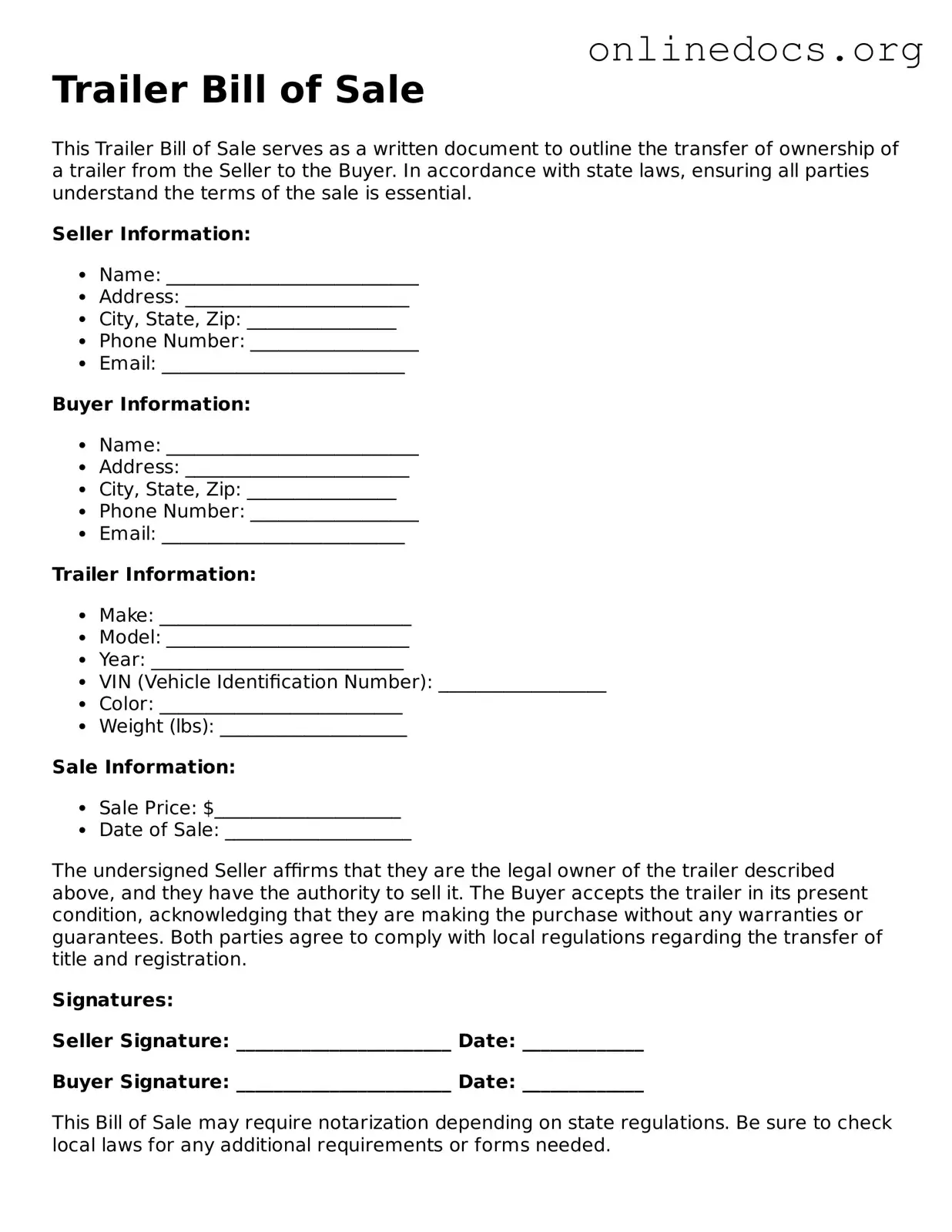Filling out a Trailer Bill of Sale form is an important step in the process of buying or selling a trailer. However, many people make mistakes that can lead to complications down the road. One common error is failing to include all necessary information. Buyers and sellers must provide accurate details such as the trailer's make, model, year, and Vehicle Identification Number (VIN). Omitting this information can create confusion and may even result in legal issues.
Another frequent mistake is not signing the document. A Bill of Sale is not just a formality; it serves as a legal contract between the buyer and seller. Both parties must sign the document to validate the transaction. Without signatures, the sale could be disputed later on.
People often overlook the importance of the date of sale. This date is crucial for record-keeping and can affect the transfer of ownership. If the date is missing or incorrect, it may lead to misunderstandings about when the sale occurred, potentially complicating matters like taxes or registration.
Inaccurate descriptions of the trailer can also pose a problem. Buyers expect the trailer to match the description provided in the Bill of Sale. If there are discrepancies, the buyer may feel misled and could seek legal recourse. It’s essential to be as detailed as possible when describing the trailer’s condition and features.
Another common mistake is not including the purchase price. This figure is vital for both parties. It serves as a record of the transaction and can impact future sales or registrations. Without a clearly stated price, there may be disputes about what was agreed upon.
People sometimes forget to check local regulations regarding the Bill of Sale. Different states may have specific requirements for the document. It’s important to ensure that the form complies with local laws to avoid any potential issues during the registration process.
Moreover, neglecting to keep a copy of the signed Bill of Sale is a significant oversight. Both parties should retain a copy for their records. This documentation can be invaluable in case of disputes or if proof of ownership is needed in the future.
Lastly, failing to verify the buyer’s identity can lead to complications. Sellers should take steps to ensure they are dealing with a legitimate buyer. This can help prevent fraud and ensure a smooth transaction. Taking these precautions can save both parties time and stress in the long run.
